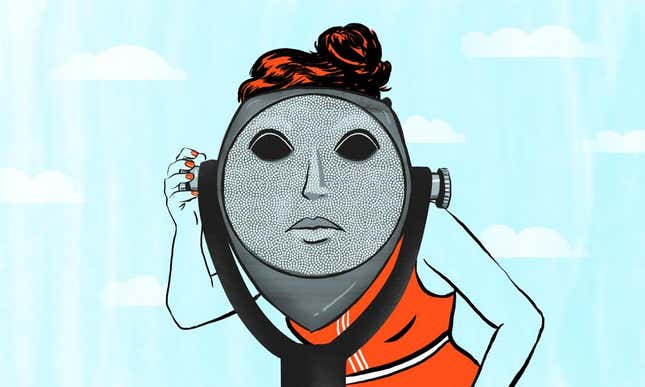Yes, You Can Choose to Be More Empathetic
Latest

It’s easy to think of empathy as something you’ve got or don’t got, but researchers contend that a new spate of research proves the opposite: You can choose to be more empathetic, and people who lack empathy are often people whose lives are set up so that they don’t “need” it.
The idea of cultivating empathy, of course, is not so crazy. If you have the slightest bit of self-awareness about your own thoughts, you can surely detect when you’re viewing your fellow humans as more or less deserving of your general regard, broad-mindedness and basic respect. This generosity of spirit toward others can even vary from day to day or by circumstance, but it could also be the framework through which you try to view all of humanity—try being the operative word, in that you can work towards empathy, again and again.
That’s more or less what David Foster Wallace was getting at in his famous commencement speech from 2005 at Kenyon College (text or condensed video here). In it, he warns graduating students of the often brutal tedium of adult life ahead of them, suggesting that it will be all too easy to operate from the default setting where you are the center of the universe, and everyone else as in your way, viewed as a nuisance at best or with contempt at worse.
But he insists that if education teaches you “how to think,” then being good at thinking is in fact being good at choosing what to think about, exerting control over how you see the world and your fellow man, and that every day you can, in essence, make the decision to view them with more understanding and empathy. This is, he says, is what it means to be well-adjusted.
I would venture that we participate in exercises that increase our empathy unwittingly all the time. Anytime we experience an unfamiliar point of view, the ball is moving: documentaries, essays, movies, even listicles can make us aware that we have no idea about the struggles faced by people around us. These are pretty lazy things to undertake, all said—passive and risk-free—and I don’t mistake them with actually doing anything to make the world a better place. But by being even willing to engage other view points, watch them, think about them, and let them in your mind, you have in fact, chosen to be more empathic, and such thinking trickles down into how you interact with and treat others. And that matters enormously.
But apparently past research has not viewed empathy as something we can fine-tune. Writing at the NYT, Daryl Cameron, Michael Inzlicht and William A. Cunningham argue that, although previous research suggests empathy is a “limited resource,” akin to a fossil fuel, it might actually be a more fungible quantity than researchers have made it out to be. Empathy is indeed bounded in practice, they say, because humans are flawed. But its bounds mostly have to do with circumstances and choice. In other words, we can increase the limits of our empathy if we want to.
It’s an often-cited truism that people will feel more empathy for one hungry child than a million. But Cameron, Inzlicht and Cunningham mention one study, in which participants divided into two groups read about either one child refugee from Darfur or a group of eight, with half being told they’d be asked afterward for a donation. They write:
-

-

-

-

-

-

-

-

-

-

-

-

-

-

-

-

-

-

-

-

-

-

-

-

-

-

-

-

-

-

-

-

-

-

-

-

-

-

-

-








































